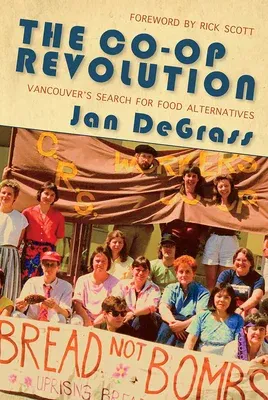"We were undercapitalized, inexperienced, practiced democratic
decision-making and some of us smoked dope occasionally. All elements
that would make us grow as human beings and as business people. We ran a
helluva show."
In the spring of 1975, a free-spirited Jan DeGrass backpacked across
Canada in search of adventure and greater meaning in life. When she
arrived in Vancouver, she met a group of people committed to social
change; together they re-imagined the food industry in BC.
In The Co-op Revolution: Vancouver's Search for Food Alternatives,
author and journalistDeGrass writes about her journey as a founding
member of the Collective Resource and Services Workers' Co-op. Bounding
to life during the heady, activist, grant-funded years of 1974-1980, the
CRS Co-op became one of the most successful co-ops in BC and was
committed to co-operation and worker ownership. While the decade of the
seventies is remembered for its new wave of co-ops--usually organized by
a "free-flowing" collection of women and men in their twenties--CRS was
unique in its success. Among its many accolades, it created the Tunnel
Canary cannery, the Queenright Co-operative Beekeepers, Vancouver's
popular Uprising Breads Bakery and a food wholesaler, which later became
Horizon Distributors. The economic, political and social skyline of
Vancouver was changing. For some, the co-op movement was about crushing
capitalism; for others it was simply about buying cheap, wholesome food
from people they trusted and living in communal camaraderie. No matter
the pursuit, co-operation was the answer.

